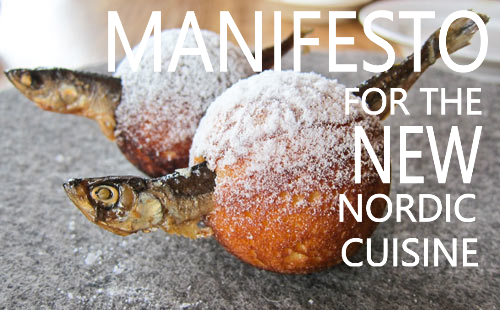In Denmark, a key example of ecosystem support is the Food and Bio Cluster. This is one of the 13 industry-specific Danish business clusters, specifically created to aggregate actors from all levels of the ecosystem to provide platforms for connection and growth. The cluster boasts more than 450 members including startups, universities, investors, city governments, and multinational corporations. Of primary interest in this project are the startups, whose diverse work takes place at all levels of the value chain. There are companies working with a wide range of products and services ranging from farming-related robotics to alternative proteins from plants and insects to products made from byproducts that would otherwise have gone to waste.
New Nordic Food Manifesto
The New Nordic Food Manifesto introduces an innovative approach to traditional foods, emphasizing health and ethical production practices. The Nordic cuisine aims to instill and inspire a sense of joy, taste, and diversity both nationally and internationally, as articulated in its initial vision:
“As Nordic chefs, we believe it is time to establish a New Nordic Kitchen that, through its exceptional taste and distinct character, can stand alongside the world’s finest cuisines.”
In November 2004, the Nordic Kitchen Symposium convened to discuss the vision for this new Nordic cuisine and to draft the manifesto. Participants at the symposium in Copenhagen included chefs, farmers, politicians, representatives from the food industry, and other food enthusiasts from across the Nordic Region. The event was organized in collaboration with the Secretariat to the Nordic Council of Ministers.
Application in Southern Italy
The creation of the New Nordic Food Manifesto enabled Nordic chefs to unite around a modern food culture and move from the shadows to an international top spot in food. Copenhagen, led by restaurants such as Noma, has overtaken many classical fine-dining spots as a destination due to innovative, sustainable, and modern cooking. This approach could be translated to the context of Southern Italy. Southern Italy could follow the example of Emilia-Romagna, who successfully marketed their region: They positioned Parma as a UNESCO Creative City of Gastronomy under the slogan Parma Food Valley, and attracted the BluFuture Accelerator, among others. Apart from Parma, Bergamo (Gastronomy) has

